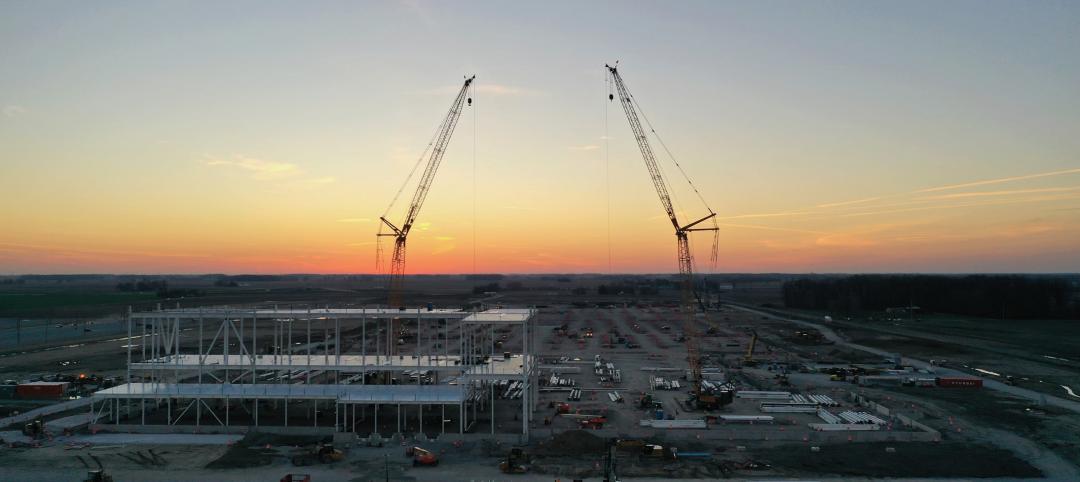The National Council of Architectural Registration Boards (NCARB) has voted to approve significant changes that will streamline and overhaul the Intern Development Program (IDP), which most states require to satisfy experience requirements for initial licensure as an architect. The changes will only be applicable where adoption has occurred by individual jurisdictional licensing boards.
The changes will be implemented in two phases. The first will streamline the program by focusing on the IDP’s core requirements and removing its elective requirements. The second phase will condense the 17 current experience areas into six practice-based categories that will also correspond with the divisions tested in the Architect Registration Examination® (ARE®).
NCARB announced the proposals to modify the IDP in late June at its Annual Business Meeting, which was attended by representatives of its 54 member jurisdiction boards that oversee architect licensing in their states or territories. After reviewing the feedback from the boards, the Board of Directors voted to move forward with both proposals for implementation in mid-2015 and mid-2016.
“Streamlining of the IDP requirements will reduce complexities while ensuring that intern architects still acquire the comprehensive experience that is essential for competent practice, and result in a program that is both justifiable and defensible,” said NCARB President Dale McKinney, FAIA.
Phase 1: Focusing on Core Requirements
The IDP currently requires interns to document 5,600 hours of experience, with 3,740 of those hours as core requirements in specific architectural experience areas. The remaining 1,860 hours are elective hours. The first reinvention phase will streamline the IDP by removing the elective hour requirement, with interns documenting only the 3,740 hours in the 17 core experience areas.
In making its decision to eliminate the elective hours, the Board considered several important statistics:
· The average intern currently takes five years to complete the hours required for IDP and another 2.2 years to complete the ARE, totaling an average of more than seven years from graduation to licensure.
· With this reduction in required IDP hours, it is likely that the average intern will take roughly three to four years to complete their IDP requirements following this change.
· Combined with the time required to complete the ARE, the Board anticipates that the average intern will have five to six years of post-graduation experience prior to qualifying for initial licensure.
Implementation and Jurisdictional Adoption
NCARB expects to implement the first phase on or before June 2015. Many states will need to formally adopt the streamlined program because of how experience requirements for licensure are written in their laws or rules.
“Our planning efforts will include development of a campaign to inform interns of the importance of understanding the variables in jurisdictional laws and rules related to the experience requirement when considering where they will apply for licensure,” McKinney said.
Phase 2: Aligning Internship and Examination
The Board also agreed to a future realignment of the framework of IDP requirements into six experience categories reflecting the six general areas of practice, which were identified by the 2012 NCARB Practice Analysis of Architecture. These changes will mirror the six divisions of a future version of the licensing exam, known as ARE 5.0.
NCARB’s internship-related committees will provide guidance on mapping the existing requirements into the new, overhauled format. This work should be completed and ready for introduction in mid-2016, before the launch of ARE 5.0 in late 2016.
To learn more, NCARB recommends that interns, architects, and other stakeholders visit the NCARB website, blog, and frequently-asked-questions web pages for information as the IDP implementation plan develops.
Related Stories
Higher Education | Aug 7, 2023
Building a better academic workplace
Gensler's David Craig and Melany Park show how agile, efficient workplaces bring university faculty and staff closer together while supporting individual needs.
University Buildings | Aug 7, 2023
Eight-story Vancouver Community College building dedicated to clean energy, electric vehicle education
The Centre for Clean Energy and Automotive Innovation, to be designed by Stantec, will house classrooms, labs, a library and learning center, an Indigenous gathering space, administrative offices, and multiple collaborative learning spaces.
Green | Aug 7, 2023
Rooftop photovoltaic panels credited with propelling solar energy output to record high
Solar provided a record-high 7.3% of U.S. electrical generation in May, “driven in large part by growth in ‘estimated’ small-scale (e.g., rooftop) solar PV whose output increased by 25.6% and accounted for nearly a third (31.9%) of total solar production,” according to a report by the U.S. Energy Information Administration.
Resiliency | Aug 7, 2023
Creative ways cities are seeking to beat urban heat gain
As temperatures in many areas hit record highs this summer, cities around the world are turning to creative solutions to cope with the heat. Here are several creative ways cities are seeking to beat urban heat gain.
Government Buildings | Aug 7, 2023
Nearly $1 billion earmarked for energy efficiency upgrades to federal buildings
The U.S. General Services Administration (GSA) recently announced plans to use $975 million in Inflation Reduction Act funding for energy efficiency and clean energy upgrades to federal buildings across the country. The investment will impact about 40 million sf, or about 20% of GSA’s federal buildings portfolio.
MFPRO+ New Projects | Aug 4, 2023
Nashville gets 'first-of-its-kind' residential tower
Global architecture firm Goettsch Partners announces the completion of Alcove, a new 356-unit residential tower in Nashville, Tenn., developed by Giarratana LLC.
Industrial Facilities | Aug 3, 2023
The state of battery manufacturing in the era of EV
One of the most significant changes seen in today’s battery plant is the full manufacturing process—from raw materials to the fully operational battery.
Government Buildings | Aug 2, 2023
A historic courthouse in Charlotte is updated and expanded by Robert A.M. Stern Architects
Robert A.M. Stern Architects’ design retains the original building’s look and presence.
Hotel Facilities | Aug 2, 2023
Top 5 markets for hotel construction
According to the United States Construction Pipeline Trend Report by Lodging Econometrics (LE) for Q2 2023, the five markets with the largest hotel construction pipelines are Dallas with a record-high 184 projects/21,501 rooms, Atlanta with 141 projects/17,993 rooms, Phoenix with 119 projects/16,107 rooms, Nashville with 116 projects/15,346 rooms, and Los Angeles with 112 projects/17,797 rooms.
Architects | Aug 1, 2023
Ware Malcomb announces hire of Jason Golub as Regional Director
In this role, Golub is responsible for the overall leadership and continued growth of the office.

















